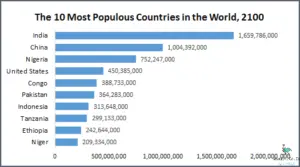
South Africa is one of the most dangerous countries in the world, with a very high rate of violent crime. Crime has been a major problem in South Africa for decades, with levels of violence and crime that are among the highest in the world. There are a number of factors that are believed to contribute to the high levels of crime in South Africa, including a lack of economic opportunities, a high rate of unemployment, poverty, inequality, and the legacy of apartheid.
South Africa has a history of racial segregation and discrimination, which has led to a high level of economic inequality. This economic inequality has led to a lack of economic opportunities, which can lead to crime as people seek to make a living or gain access to resources. Unemployment is also very high in South Africa, with a 2020 rate of 30%. This can lead to people turning to crime as a means of making money.
Poverty is also a major problem in South Africa, and it is believed to be a major factor in the high levels of crime. Poverty is linked to crime as people may commit crimes in order to gain access to resources or money. Inequality is also high in South Africa, with the majority of the wealth being concentrated in the hands of
Contents
Why Is Crime So High In South Africa
Crime in South Africa is often attributed to the country’s economic inequality. There are large disparities between the rich and the poor, with little opportunity for the lower classes to get ahead. This contributes to a sense of hopelessness and desperation, which can lead to criminal activity. Poor governance, low levels of education, and unemployment are also contributing factors. Furthermore, the prevalence of guns and other weapons makes it easier for criminals to commit violent acts. In addition, South Africa’s past history of violence, racial tension, and political unrest have added to the high crime rate. All these factors together have resulted in a country with extremely high levels of crime.
Historical and Social Factors Contributing to High Crime Rates
Crime in South Africa is a complex and multifaceted phenomenon that is deeply rooted in the country’s history and social context. It is important to understand the historical and social factors that have contributed to the nation’s high crime rates in order to effectively address the issue. In this article, we will explore the historical and social factors that have contributed to crime in South Africa.
First, it is important to understand the social and economic context of South Africa. The nation has been plagued by inequality since the end of Apartheid in 1994, with the majority of wealth concentrated in the hands of a few and poverty still widespread in many areas. This inequality has perpetuated a sense of injustice and frustration among many South Africans, which in turn has led to an increase in crime.

In addition, the legacy of Apartheid has created a culture of “institutionalized racism”–a system of structural and institutional racism that has been maintained by the government. This has led to a lack of access to education and economic opportunities for many communities, which has further contributed to the nation’s high crime rates.
Finally, there is the issue of corruption. Corruption in the police force, the justice system, and other government institutions has led to an environment of impunity and lawlessness, which has further enabled crime to flourish. In addition, the prevalence of organized crime and gangs has also contributed to South Africa’s high crime rates.
In conclusion, a number of historical and social factors have contributed to South Africa’s high crime rates. These include the legacy of Apartheid, inequality, corruption, and the prevalence of organized crime and gangs. It is important to understand these factors in order to effectively address the issue of crime in South Africa.
Impact of Poverty and Inequality on Crime
The scourge of crime in South Africa has been an ongoing problem for many years, and it is one that is deeply rooted in poverty and inequality. The country has some of the highest levels of poverty and inequality in the world, and this has a direct impact on the levels of crime in the nation. Poverty and inequality lead to an increase in crime as they create a sense of desperation and hopelessness among those affected, often leading to people resorting to criminal activity to make ends meet.
Moreover, poverty and inequality create an environment where crime is seen as an attractive option. When people are living in poverty, they often have few other avenues to explore when it comes to providing for their families. This can lead to people turning to crime as a way to make money and provide for their families. In addition, inequality can lead to a sense of injustice, which can further fuel criminal activity.
Furthermore, poverty and inequality also lead to an increase in crime as they can create an environment where crime is seen as a viable option for those in desperate situations. People living in poverty often lack access to resources such as education, healthcare, and employment, which can lead to an increase in criminal activity as people turn to crime to make money. Additionally, inequality can lead to an increase in crime as those in disadvantaged positions may feel that they are not receiving a fair share of resources and resort to criminal activity as a way to make money.

In conclusion, it is clear that poverty and inequality have a substantial impact on the levels of crime in South Africa. The country has some of the highest levels of poverty and inequality in the world, and this can lead to an increase in criminal activity as people are more likely to turn to crime when they are living in poverty and inequality. Policymakers must recognize the impact of poverty and inequality on crime and take steps to reduce their levels in order to reduce crime in South Africa.
Government Response to Crime in South Africa
The issue of crime in South Africa is an alarming and complex one. While the country has made significant strides in tackling the problem, the statistics remain troubling. In 2018, there were a total of 21,325 reported murders in the country, making South Africa one of the most violent countries in the world. It has also been estimated that one in three South Africans will become a victim of crime in their lifetime.
The South African government has responded to the high levels of crime in the country with a variety of initiatives. The South African Police Service (SAPS) has been tasked with the responsibility of tackling crime in the country, and the government has provided additional funding to support their efforts. The SAPS has also been utilizing cutting-edge technology such as facial recognition and DNA analysis to help identify and prosecute criminals.
The government has also implemented a number of initiatives designed to reduce the prevalence of crime in the country. These initiatives include the implementation of neighborhood watch programs, increased investment in youth programs, and the development of initiatives to strengthen the criminal justice system. Additionally, the government has taken steps to address the underlying causes of crime in the country, such as poverty, inequality, and inadequate access to education and employment opportunities.
The government has also taken a hardline stance on the issue of crime. The South African government has adopted a zero-tolerance policy towards criminals and has implemented a variety of measures to deter crime. This includes increasing the maximum sentences for serious crimes, implementing community service orders, and introducing tougher bail requirements.
Ultimately, the South African government has taken a number of steps to address crime in the country. While the statistics remain troubling, the government is committed to making South Africa a safer place for all its citizens.
Conclusion
After examining the numerous factors that contribute to the high crime rate in South Africa, it is clear that poverty, inequality, unemployment, and a lack of educational opportunities are all major factors. Additionally, the country’s long history of institutionalized racism, political instability, and weak law enforcement have all contributed to the high levels of crime. Despite these issues, there is hope that South Africa can take steps to reduce crime. Increasing employment opportunities, investing in education and job training, and strengthening the police force are all measures that could help to reduce crime in South Africa.




